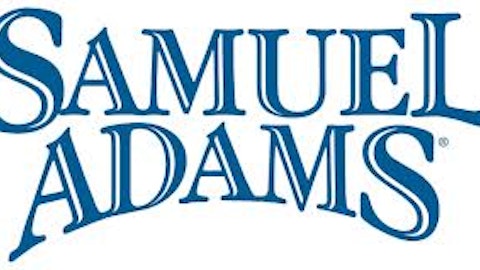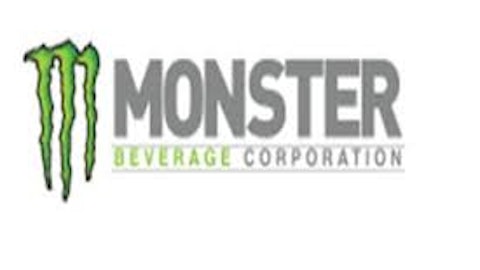A skill in increasing demand for CEOs of global corporations is the ability to deal with hedge fund moguls who possess strong opinions and billions of dollars at their disposal.
Nelson Peltz’s Trian Fund Management is a significant shareholder in both PepsiCo, Inc. (NYSE:PEP) and consumer goods giant Mondelez International Inc (NASDAQ:MDLZ). Trian issued a whitepaper in July, which argued that Pepsi has underperformed in recent years due to the difficulties of running both a snacks business (Frito-Lay) and beverage business under one roof. The paper proposed that Pepsi should merge with Mondelez, thus creating what Trian terms a “global snacks powerhouse,” and soon after spin off Pepsi’s beverage business into a stand-alone company.

The pitch to shareholders
Trian’s argument to Mondelez International Inc (NASDAQ:MDLZ) shareholders consists of three major themes. First, the merged companies will realize significant revenue and cost synergies (financial benefits from a combination that are greater than can be achieved by the existing entities separately). Second, Mondelez shareholders will receive a 16% premium in the merger. Third, Trian suggests that PepsiCo, Inc. (NYSE:PEP) should be able to drive 400 basis points (4%) of improvement in Mondelez’s stand-alone operating income margin. Trian refers to this margin as “earnings before interest and taxes,” or EBIT margin — it’s the same number.
The first two themes should be attractive to Mondelez International Inc (NASDAQ:MDLZ) shareholders, but probably won’t sell the deal. Synergies can be a significant source of profit and cash flow enhancement in a merger, but they have to be realized through competent execution, and shareholders often discount their effect until after a merger is completed. As for the 16% premium, Mondelez management and shareholders alike can assess that the same stock-price appreciation is very attainable in the near term — if the company delivers on its stated goal of growing long-term revenues in the 5%-7% range.
The focus on operating income margin is a different matter entirely. In its whitepaper, Trian notes that Mondelez International Inc (NASDAQ:MDLZ)’s operating income margin has trailed its peers in the diversified foods group. At 12.2% annual operating income margin, Mondelez is roughly 380 basis points, or 3.8%, behind its group average. Trian points out that simply improving margins by 400 basis points would create an additional $1.4 billion of annual cash flow to Mondelez, and would be worth somewhere in the neighborhood of $16 billion to shareholders in the form of increased market capitalization.
Rosenfeld and team pounce on an opening
Now, Trian’s document, which you can view here, is for the most part extremely well reasoned and backed with lots of supporting data. However, regarding Mondelez International Inc (NASDAQ:MDLZ)’s margins, the document provides no detail on how PepsiCo, Inc. (NYSE:PEP) would actually help achieve this improvement, except for the implicit promise in pointing out that Pepsi’s equivalent snacks business currently achieves operating income margins that are more than 600 basis points greater than Mondelez’s.
Mondelez International Inc (NASDAQ:MDLZ) CEO Irene Rosenfeld and her management team apparently noted the soft point in Peltz’s argument, and effectively rebutted it head on last week with their presentation at Barclays Capital’s “Back to School Conference.” The company put forward its plan to achieve 300 basis points of margin improvement, which will result in approximately $1 billion of cash flow annually, through an initiative to modernize its supply chain. Mondelez’s somewhat disjointed supply chain currently reflects the legacy of numerous acquisitions the company had made under its Kraft banner, from Milka Chocolates to Nabisco to Cadbury, so reforming the supply chain is in some sense low-hanging fruit.
At the conference, Executive Vice President Daniel Myers relayed that the company intends to reduce its base of supply, using Europe as an example, where the company has more than 4,000 suppliers alone. Mondelez International Inc (NASDAQ:MDLZ) will focus on larger suppliers, bringing them closer to its production facilities. It will also trim its rather bloated portfolio, which currently stands at more than 74,000 SKUs (stock-keeping units).
The most tangible example of margin improvement given at the conference was the company’s plan to install new lines in Oreo production facilities. These lines will enable Mondelez International Inc (NASDAQ:MDLZ) to double its production capability in half the current space and require fewer workers to operate. Each will deliver $10 million in operating savings, and Mondelez plans to install 60 of them in the next three years. This part of the presentation was important as it gave analysts and investors a concrete example of process improvement with specific targeted annual savings ($600 million at the least).




